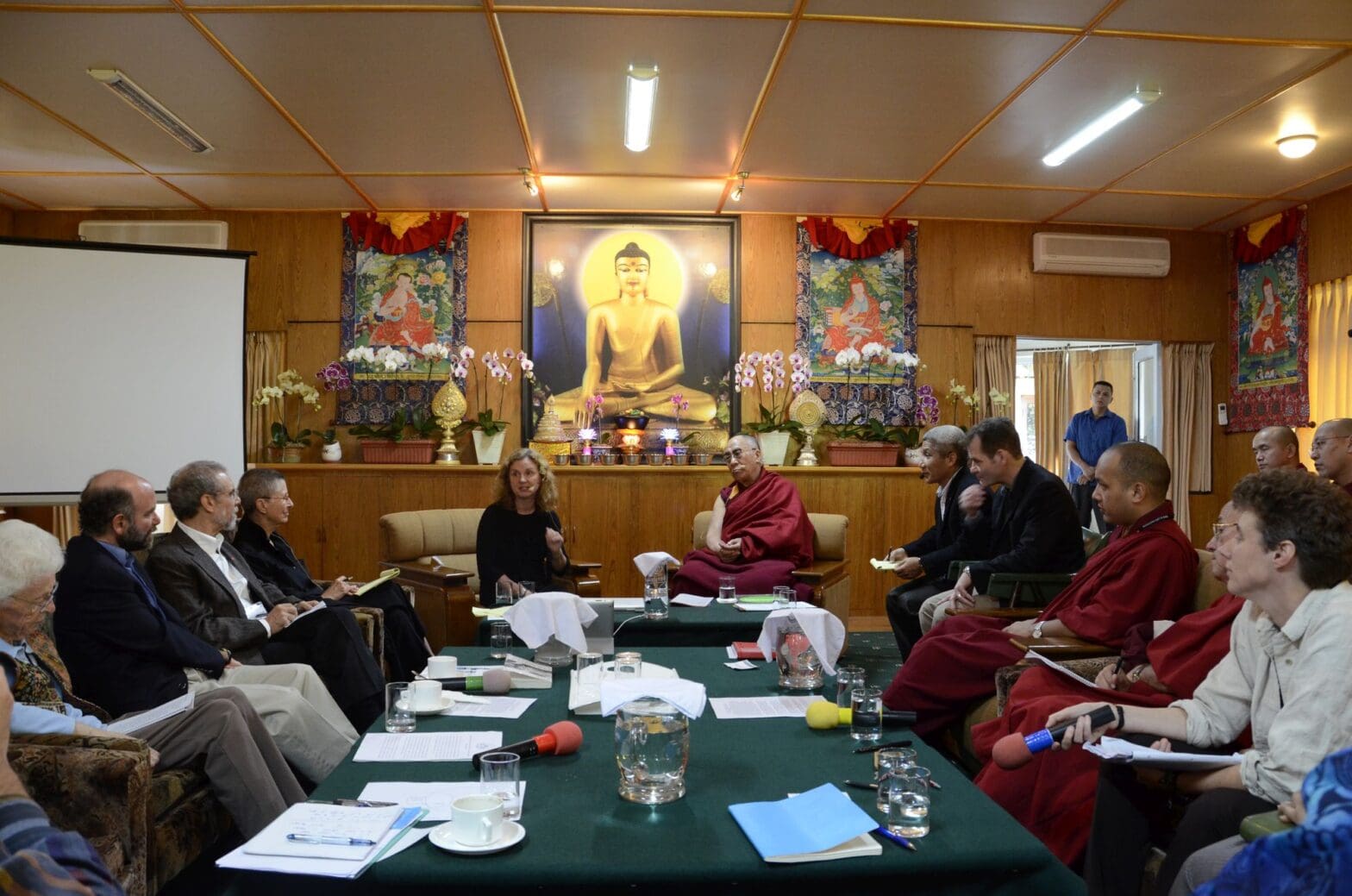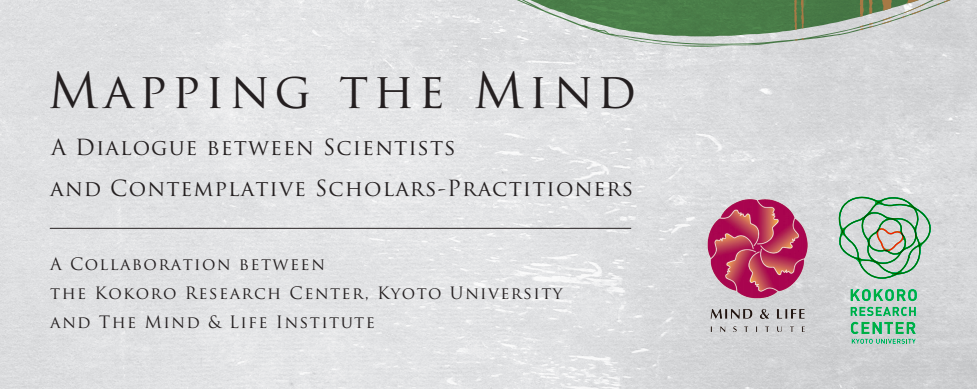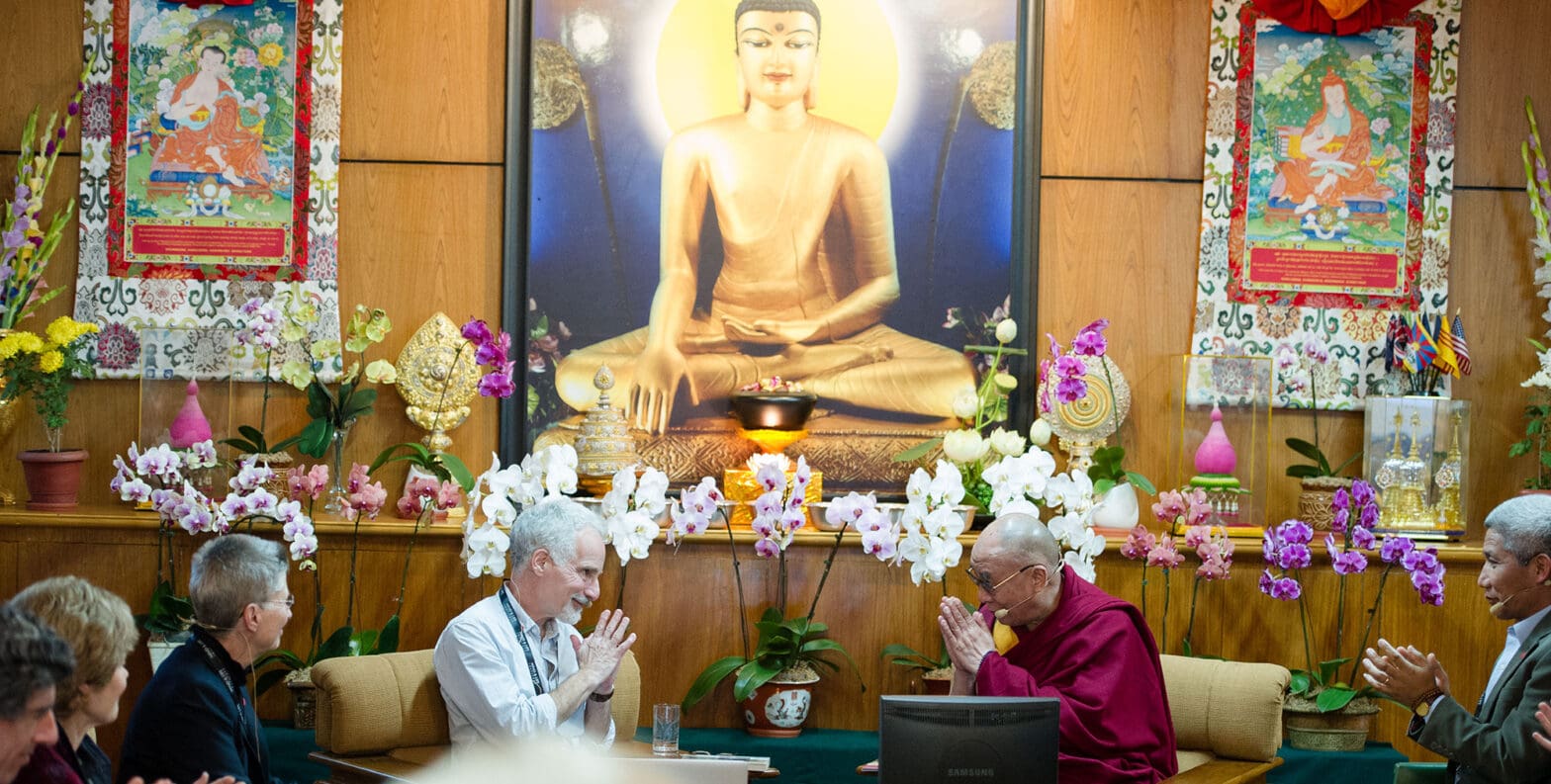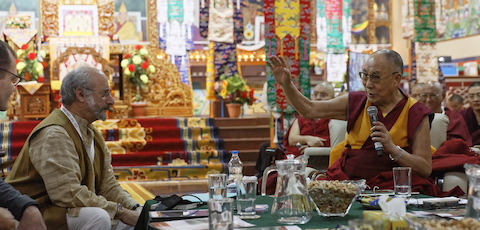The slow meltdown of Earth’s capacity to sustain much of life, as we know it, poses an urgent challenge for both spiritual traditions and science. These two ways of knowing have developed distinctive responses, which are potentially synergistic. The goal of the meeting is to provide an opportunity to articulate an engaged environmental ethics. This …
Topic Archives:
2014 Mind & Life Dialogue XXIX
The nature of the human mind remains one of the most profound unresolved questions we face as a species. While the mind’s ultimate nature may forever elude us, we can nonetheless carefully study the mind’s characteristics, capabilities, and associated phenomena. We have mapped the human genome, the night sky and the fundamental particles of the …
2013 Mind & Life Dialogue XXVII
Desire is a natural part of life that provides the motivating force for our achievements. Our highest aspirations are animated by desire. Yet, when desire becomes obsession or craving, we cross over into the territory of suffering. What before was an aid to accomplishment can devolve into a source of personal anguish and social violence. …
2013 Mind & Life Dialogue XXVI
This landmark six-day event, convened at the specific request of the Dalai Lama, brought together 20 of the world’s foremost scientists and philosophers with senior Tibetan scholars. Several thousand monks and nuns from numerous Tibetan monastic centers of learning were in attendance. In addition to critically engaging in important questions of mutual interest and challenge …
2015 Mind & Life Dialogue XXX
Western science has advanced our understanding of many foundational issues in cognition, and has expanded psychological and philosophical explorations of the mind. Among the central topics addressed in this scientific endeavor are perception, concept acquisition, the nature of conceptual thought, and the role of language in cognition, and the origins and content of our sense …
“Education of the Heart”: New Mind & Life Digital Dialogue Spotlights Role of Education in Human Flourishing
Today’s children are growing up at a time of unprecedented change and escalating challenges. How can we best equip them with the social-emotional skills and ethical dispositions needed to manage complex emotions, build positive relationships, and assume active roles within their local and global communities? A new Mind & Life Institute digital dialogue, “Education of the Heart,” offers rich …
New Mind & Life Podcast to Tell Deeper Story of Contemplative Science
In April, the new Mind & Life podcast will make its debut. Neuroscientist, meditator, and Mind & Life Science Director Wendy Hasenkamp will host the show, engaging experts across a range of disciplines in deepening our understanding of the mind and contemplative practice. Guests will share their research and insights, while probing broader issues: What are the …
Continue reading “New Mind & Life Podcast to Tell Deeper Story of Contemplative Science”
2019 Mind & Life Conversation
Join the Mind & Life Institute online for two special free Livestream events from Dharamsala, India. On October 30th and November 1st, we will host two unique conversations between Pumla Goboda-Madikizela, David Sloan Wilson, and the Dalai Lama. Livestream video replays are available.
Assessing beneficial relationship factors that support contemplative development
There has been considerable research and enthusiasm for investigating how contemplative training might improve social relationships. However, contemplative training is necessarily embedded in a network of social relationships, and researchers have not sufficiently studied the impact of one’s relationships on contemplative practice and development. Furthermore, contemplative training in the modern world is increasingly focused on …
Continue reading “Assessing beneficial relationship factors that support contemplative development”
Assessing the effect of contemplative-based training in self awareness, self-regulation, prosocial attitudes and ethical decision making in employees of private or public organizations in Mexico
Decisions from Mexican employees from the public sector have enormous impact on Mexican society. Government employees experience great levels of stress and many times they don’t have tools to deal with conflictive situations and decisions at work. As a means to promote well-being and secular ethics in government employees that may impact their productivity and …








